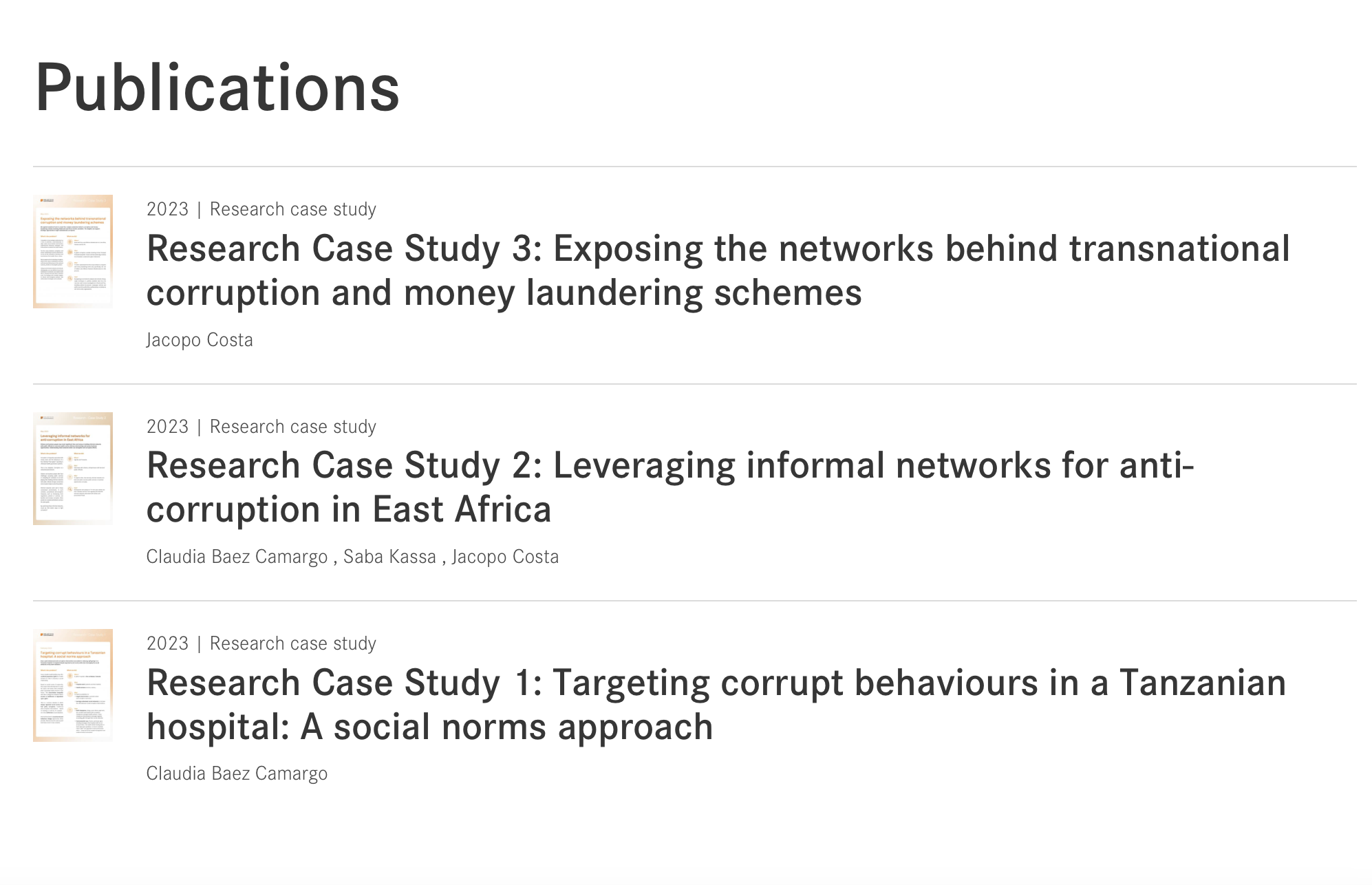Research Case Study 1: Targeting corrupt behaviours in a Tanzanian hospital: A social norms approach
This research case study describes how a pilot behavioural anti-corruption intervention succeeded in reducing “gift giving” in a Tanzanian hospital. It targeted deeply ingrained social norms while also leveraging the social networks of key staff members.
This research project was funded by the Global Integrity Anti-Corruption Evidence Programme (GI-ACE), funded with UK aid from the UK government. The project implementation was a collaboration between the Basel Institute on Governance, the UK Behavioural Insights Team, the University of Dar es Salam and the University of Utrecht.
Citizens and business people may invest significant time and money in building informal networks with public officials to overcome public service delivery shortcomings and access business opportunities. Understanding these networks better can strengthen anti-corruption efforts.
This research case study gives a brief overview of our Public Governance team’s research in Uganda and Tanzania. Through interviews, the team explored when, how and why informal networks are built and used to access public services or business opportunities corruptly.
The research project described was carried out under the Global Integrity Anti-Corruption Evidence Programme (GI-ACE), funded with UK aid from the UK government. All results are freely shareable under a Creative Commons licence.
Corruption is increasingly understood as a form of collective, social behaviour. It slips easily across borders and involves sophisticated financial strategies and transactions to launder the stolen money.
Yet the nexus between corruption and money laundering is poorly understood. So too are the structures, functions and mechanisms that enable these crimes.
We applied analytical tools to reveal the complex networks behind a corruption and money laundering scheme involving Odebrecht and Peru’s former president. The insights can support strategic approaches to fight transnational corruption.


